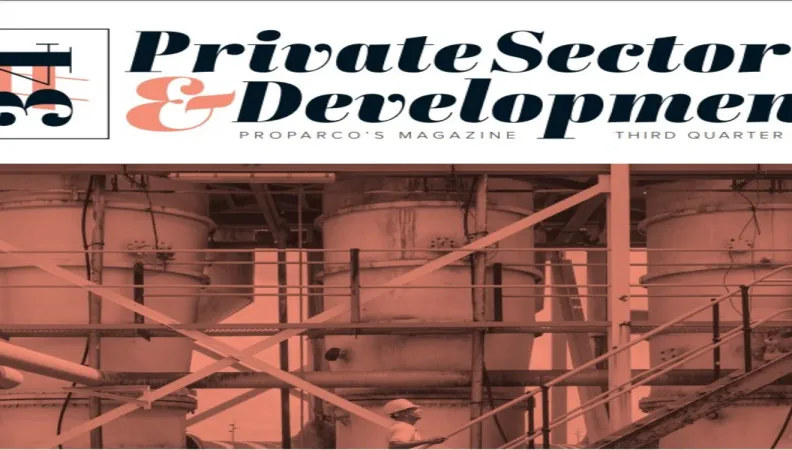Share the page
Making Industrial Development Sustainable: "Private Sector & Development"
Published on

The industrial sector is often said to be essential to economic development, but it is also a source of much controversy (environmental impact, labor law compliance, creation of decent jobs and other issues). This is why Proparco has devoted the latest issue of its review Private Sector & Development to themes linked to the industrial sector at a time when questions of sustainability are increasingly urgent. In this review, researchers, economists, representatives of NGOs and business leaders shed light on topics that are also pertinent to the current health and economic crisis caused by the Covid-19 epidemic.
Is industrialization behind the "Asian Miracle"? Is it the panacea for African development?
Industrialization is frequently touted as an indispensable stage in economic development. It accounts for a major portion of employment and generates technological innovation. Today, it accounts for 25% of GDP in Sub Saharan Africa and 36% of GDP in Southeast Asia.
As much as the industrial sector can be a part of the transition to more ecologically sound forms of development, it is also responsible for many of the problems that makes this transition difficult, and raises questions about the transformations required for the implementation of the Paris Agreement and environmental conservation. It also poses challenges for societies attempting to comply with social and environmental standards to ensure sustainable and more equitable development (creation of decent jobs, harnessing clean technology, shared innovation).
Already Complex Economics...Get More Complicated
Such issues have been cast into sharp relief by the Covid-19 pandemic, and caused economic hardship around the world. Economic issues that were already complex, are all the more nettlesome in the midst of a global health and social crisis.
The authors of this issue – researchers, economists, representatives of NGOs and business leaders – help us understand the main issues surrounding industrialization, such as innovation, technical assistance and working conditions, and invoke best practices.
The review explores links between industry and climate for example, challenges in the textile industry and African industrialization in particular. Two analytical articles and a case study in Morocco also focus on the impact and consequences of the Covid-19 crisis.
Read and download the review here.
